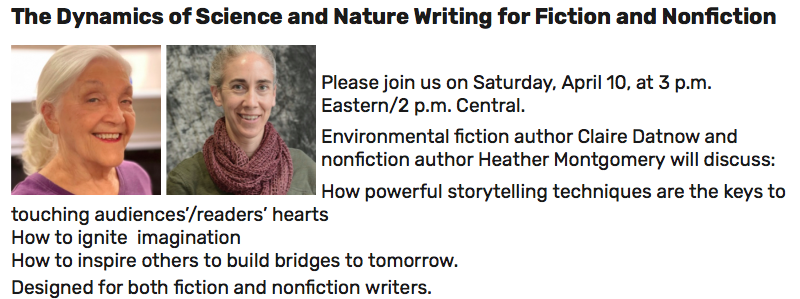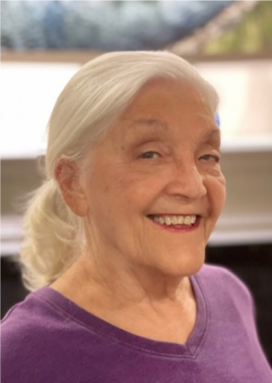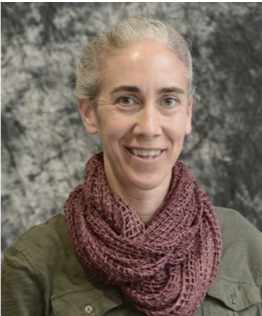Alina Stefanescu got the chance to chat with Birmingham writer, Lauren Slaughter, about life in pandemic. In the meantime, she won an NEA Arts Fellowship—and we celebrate her writing, work, and life here.
I want to begin by thanking you for this opportunity to talk about writing and life. The first time I heard the name Lauren Slaughter, it was firmly attached to the word poet. But in the last year, you've published some incredible essays and fiction. I'd love to know more about the context that created those pieces. Has your identity as a poet shifted into something broader, or do you (like some) still primarily approach the page as a poet who may also write prose? Why or why not?
Thank you so much for the invitation! And thank you, too, for your kind words about my prose writing recently. It’s funny, but I think that I’ve mostly returned to prose (my first love, as a writer) for rather pragmatic reasons. For a long time, especially when my children were younger, I’m not sure I could process or deal with more text than I could lay out on my counter in a page or two. I could print it out, and walk by on my laps through the house, and etch in an edit here or there. I could see the whole thing. It’s certainly not easier to write poetry than it is to write prose, but during this pandemic, I’ve noticed that I have only been able to write poetry and I think it’s for similar reasons.
I’ve also had the experience of writing about a subject in poetry and then feeling like it needed a lot more physical space and exploration than I was able to give it on the first go, and in the I-centered lyric (my poems are hopelessly I-centered--I’m working on it). For example, I rather feverishly wrote a poem responding to the 2017 bomb threats to Jewish Community Centers when they occurred because my daughter attended one of the local centers for daycare at the time. The parents I know found the experience quite traumatic--the bomb threats kept occurring, we kept having to send our children to school because what else could one do? There was work to get to and the threats seemed to be empty ones. It was awful and eye-opening about the hate in this country--everywhere. I knew that I had a lot more writing to do to examine what happened. More recently, I was able to write that story.
And to your question regarding whether or not I approach the page as a poet or prose-writer? I came to poetry rather late--or, at least it used to feel that way--so I spent a lot of energy feeling like a prose-writer masquerading as a poet. Then, getting back into writing prose after a rather long break, I felt like a poet pretending she could write stories. I couldn’t win! So, now I guess I’m working on trying to use the form that works with the kind of exploration I want to do on a subject. Or, maybe it’s not that deliberate and I’m mostly just winging it. Yeah, that’s probably more like it.
Winging it sounds familiar and necessary, especially during this time of international pandemic. How has your writing process been affected, if at all, by the pandemic? How are you managing having kids at home while also editing, teaching, and trying to bring words to the page?
Gosh, I think the pandemic is having a profound effect on anybody who is writing right now. I have some writer friends who are absolutely pouring work onto the page (even ones with kids and jobs!) and I also know so many writers whose impulse to create is just not happening right now. Or, they want to write but other responsibilities are keeping them from it. I can relate to all of it. I’ve written exactly four poems in the past--what, 100 days?--and each of them was composed with a kind of fury I usually only experience once a year (if that). So, I guess right now you could say that I’m either obsessively writing or binge-watching Schitt’s Creek or chasing the kids. No inbetween exists.
Schitt's Creek is the gift that keeps on giving. I agree that the in-between is an amorphous gray zone I wish I could imagine inhabiting. A little cardinal mentioned something about a new poetry collection on the horizon--which is so exciting. Can you tell us a little bit about it? Okay, nevermind, can you tell us a lot about it?
The book is called, Spectacle, and in many ways it is an exploration of how we are shaped by the way women, in particular, are seen--it is something we either embrace or reject. I thought a lot about my daughter, mother, and sister as I wrote the book, and they each find their way into the poems in different ways. I’d describe the project as explicitly feminist, in that it both criticizes—and, occasionally, celebrates—the ways a woman’s body is seen and experienced as a kind of curiosity--something for display. Also, I zoom out in a number of poems to consider how this motif can be explored in the media and art. I look particularly at the work of Dutch portrait photographer, Rineke Dijkstra, whose work I encountered on a trip to the Guggenheim about five years ago. Her photographs are so arresting to me, so powerful, because she seems to capture her subjects in their most vulnerable moments. When I read my Dijkstra poems, I often say that her portraits are the anti-profile pic or the selfie you would like if it didn’t look so much like you--so you delete it.
Also related to the central theme and title are poems that look at contemporary American culture and so many spectacles of violence, such as the Pulse nightclub shooting and, again, those bomb threats made to Jewish Community Centers. A few new poems related to the pandemic will probably also make their way into the book before final edits.
The phrase "spectacles of violence" stood out. Walter Benjamin and others came to mind. I was wondering if any other writers informed your work in this new collection, particularly any essayists or memoir or nonfiction writers. If so, how? If not, what part of the literary landscape influenced your recent work?
Yes, thank you. I think I engage with violence in many ways in the book; violence perpetuated against women particularly, but also toward and within our American culture right now. My previous collection of poems, a lesson in smallness, was published in 2015, so most of the poems in this new book were written during the Trump presidency. And he’s all spectacle, of course-- nothing but! I was surely writing some of these poems in response to a president who brags about grabbing “pussy.”
I’ve always gravitated most to women writers, but I think even more so during the writing of this book, a book about the woman’s body as made and inherited spectacle. I often read the way I eat; by constantly adjusting to get just the right balance on the plate. It’s a bit spastic in reality, as I’m reading bits of this and that, forgetting to finish one book before picking up another. I spent the most time these past years with Anne Carson, Wislawa Szymborska, C.D. Wright, Rae Armantrout, Marie Howe, Erin Belieu, Louise Gluck, Grace Paley, Dickinson. Jane Hirshfield and Zadie Smith’s essays, and Rebbeca Traister who writes on the value and importance of female rage. And, of course, there are the Dijkstra photographs.
It feels like our relationships to words change over time as those words thicken or connote more? Has parenting changed or modified or sharpened the meaning of certain words for you? What words in particular shaped your forthcoming collection--and how did these words alter the formal dynamics or constraints you set for yourself?
This is an amazing question.
Yes, I think parenting has adjusted my relationship to language in general. I am--or, I try very hard to be--aware and deliberate about the words I use with my children and one of my greatest joys is teaching my children new words (though I’m met with eye rolls sometimes now that they are older). Those moments where I lose control of my words due to frustration or tiredness are the moments I hope don’t stand out in the minds of my children when they grow up. They stand out to me, though.
I do think this appreciation of language and the power of it has found its way into my work. I wrote the collection without a title in mind and it was when I began to words like: beholding, dilation, scrutiny, shines, mirror, invisible, eruption, muted, blooming, fluorescence, and, of course, spectacle that I started to see clearly the themes of the book I’d been writing.
Muted and blooming, I love imagining those juxtapostions. Some poets have mentioned spending more time listening rather than reading during this pandemic. Have you found any podcasts or music that keeps returning to enter your work? Does Spectacle have any musical influence? Also I would love to know more about your experience as a librettist.
I can relate. For me, and I suppose I’m not alone, it has been hard to concentrate sometimes. Also hard to sit. I admit loving to listen to audiobooks--it’s calming to have someone read me a story. Most recently I listened to Memorial Drive by Natasha Tretheway, who is also the reader. Her voice is one of my favorite poet’s voices and through the story she tells is terrible, and yet it occurs in the poet’s rhythms and language and is full of profoundly beautiful moments. Though I do listen way too much to NPR I’ve been trying to counter that with books, music (old favorites, like Bjork) and poetry podcasts like, The Slowdown.
Thanks for asking about my experience as a librettist. It was incredible and I would love to do it again. Maxwell Dulaney, a professor of composition and theory at Tulane, was in the beginning stages of composing an opera about the Eurydice myth and he asked me to come on board to write the libretto. He felt it was important for a woman to write the libretto, as the opera was to be about the experience of Eurydice and not the experience of Orpheus, which is the way the story is traditionally told. I loved imagining this world and collaborating with Max. It was a totally different way of writing and sometimes there was a steep learning curve. Mostly, I had to be prepared to cut, let go, and not become too attached to the language I had chosen because much of it had to be rearranged to fit the score. Selections from the opera, Already Root, were performed in New York in 2018 and I will never forget the beautiful soprano serenading the audience with my words. Chills!
That sounds like something worthy of a love tweet. By which I mean this endless poem called "Love" that Alex Dimitrov has created on twitter, a sort of new form adapted from a poem originally published in American Poetry Review, and continued in real time with one tweet a day. For the fun of it--and because pandemic demands new forms in both interviews and life--I would love to hear what you love. Using "I love" as an anaphora. What ten things do you love today, Lauren?
I love the light between the trees
and dear old friends as old as me.
My cat that died, his inside purr.
I love my husband’s brillo beard.
I love to sleep outside with owls
and between my wormy children.
I love the words I couldn’t write,
the secret sound of someone else.
And I love you. And after this.
And wedding cake. A big fat slice.
I love this so much--you just brought poetry into the wreck of my room, and I am so grateful. I can't wait to read Spectacle. I can't wait for this pandemic to end. On that note, I'd love to share any recent craft resources you've discovered or created that might help poets and writers who hope to smuggle some writing-time into the holiday season.
Aw, thanks. Thank you so much for interviewing me and for everything Alabama Writers’ Forum does to support writers in the state. I know it is a labor of love, and I’m so grateful to be part of this community.
As for resources, the fantastic online journal, Pigeonholes, has a wonderful free feature, Lessons from a Distance, that offers generative exercises and tutorials. I was happy to share a favorite exercise of mine there recently. Otherwise, what I love most is to put on my earbuds and lose myself in one of the many fantastic poetry podcasts available these days while I chop onions or clean up after the kids or take care of some other domestic minutia. It’s a great escape and always leaves me energized. The Slowdown and The New Yorker: Poetry and current favorites.
Lauren Slaughter is the recipient of a Rona Jaffe Foundation Writers’ Award and author of the poetry collection, a lesson in smallness. Her poems, essays, and short stories appear or are forthcoming in Image, RHINO, Pleiades, Kenyon Review Online, New South, The Journal, and 32 Poems, among many other places. She is an assistant professor of English at The University of Alabama at Birmingham where she is also Editor-in-Chief of NELLE, a literary journal that publishes writing by women.











